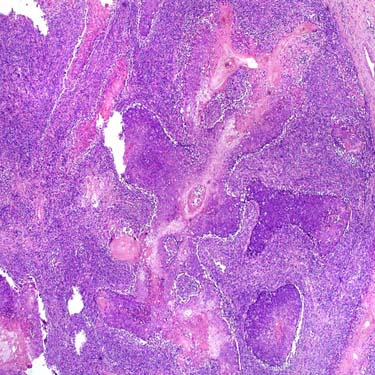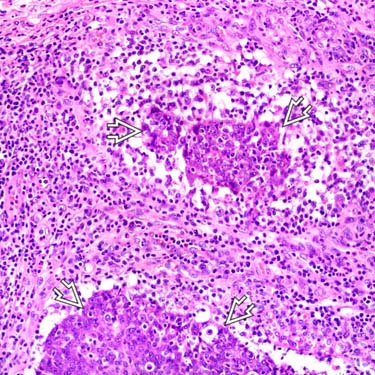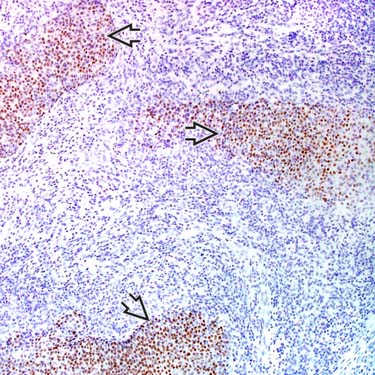High magnification of lymphoepithelioma-like carcinoma of the skin (LELCS) shows a prominent lymphohistiocytic infiltrate obscuring a background of large, undifferentiated epithelioid-appearing cells  .
.

This is an example of LELCS at low magnification showing large, irregular epithelial islands surrounded by a very dense inflammatory infiltrate.

LELCS at high magnification shows islands of atypical basaloid-appearing epithelial cells
 surrounded by a dense mixed acute and chronic inflammatory infiltrate.
surrounded by a dense mixed acute and chronic inflammatory infiltrate.
Immunohistochemical stain for p63 shows diffuse nuclear staining
 of the epithelial cells, which are in islands surrounded by inflammatory cells.
of the epithelial cells, which are in islands surrounded by inflammatory cells.CLINICAL ISSUES
Epidemiology
Treatment
• Surgical approaches




Stay updated, free articles. Join our Telegram channel

Full access? Get Clinical Tree






